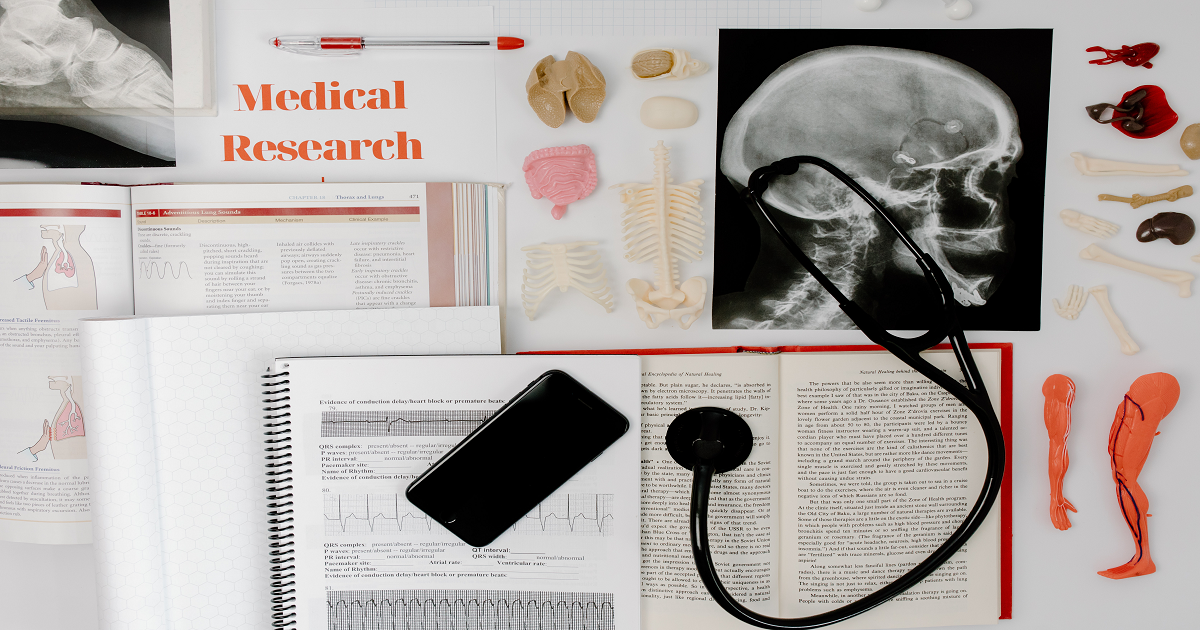The healthcare industry has a wealth of data that it needs to manage, analyze and interpret to make informed decisions.
This data includes patient data, medical research, clinical data, financial data, and administrative data.
Let’s find out how the healthcare industry uses business intelligence.
What is business intelligence?
Business intelligence (BI) is a process that involves using technology and data analytics to turn raw data into valuable information that can be used to make informed business decisions.
BI systems collect and analyze data from various sources, including databases, spreadsheets, and other software applications, to help businesses gain insights and make better decisions.
The process of business intelligence typically involves several steps, including data mining, data analysis, reporting, and dashboarding. During data mining, large sets of data are gathered from various sources and are then analyzed to identify patterns and trends.
Once the data has been collected and analyzed, it is presented in a meaningful way through reporting and dashboarding, making it easier for business leaders to make informed decisions based on the data.

The healthcare industry uses business intelligence to collect and analyze data from electronic health records (EHRs), medical imaging systems, and other healthcare applications to identify patterns and trends in patient care, clinical workflows, and financial performance.
By analyzing this data, healthcare providers can gain insights into areas where they can improve patient outcomes, reduce costs, and optimize their operations.
Business intelligence is a valuable tool for healthcare providers to improve their performance, reduce costs, and provide better care to their patients.
By using BI to collect and analyze data, healthcare providers can gain valuable insights into their operations and make informed decisions that can lead to better outcomes for their patients.
How the healthcare industry uses business intelligence
Here are some ways healthcare providers use business intelligence:
Improve patient care
The healthcare industry is rapidly generating vast amounts of patient data, from electronic health records, medical devices, and wearables. However, this data is often difficult to access, analyze, and interpret. By using business intelligence, healthcare providers can use this data to improve patient care and outcomes.
BI can help healthcare providers analyze patient data to identify trends and patterns that can inform patient care. Providers can use BI to monitor patient health in real-time and identify potential health risks.
By monitoring vital signs, lab results, and other patient data, providers can identify patients at risk of developing chronic conditions or complications, allowing for early intervention and better outcomes.
BI can help healthcare providers monitor patient satisfaction levels and identify areas that need improvement. By analyzing patient feedback and engagement, providers can gain insights into patient preferences, expectations, and pain points. This can inform improvements in patient care and communication, leading to higher patient satisfaction levels and better patient outcomes.
For example, providers can use BI to analyze patient data to identify patients at risk of hospital readmission. By identifying these patients early, providers can intervene with targeted care and support, reducing the likelihood of readmission and improving patient outcomes.
BI can help providers track patient outcomes over time and identify areas for improvement. By analyzing outcomes data, providers can identify successful treatment protocols and interventions, as well as areas that need further improvement. This can inform evidence-based decision-making, leading to better patient outcomes and improved quality of care.
Optimize resource utilization
Optimizing resource utilization is a key concern for healthcare providers as it can help to improve patient outcomes while reducing costs. Business intelligence is a powerful tool that can help healthcare providers to identify areas where resources are being underutilized and overused and optimize their use accordingly.
One of the ways the healthcare industry uses business intelligence is staff management.
BI can provide insights into staffing levels, including how much time is being spent on administrative tasks versus patient care. Analyzing this data can help providers make informed decisions about staffing levels and adjust schedules accordingly to ensure that patients are receiving adequate care.

Business intelligence can also help providers to optimize facility usage. Providers can use BI to analyze patient flow data, including how long patients are spending in different areas of the facility, and identify bottlenecks in the process.
This can inform decisions about the allocation of resources, such as the placement of equipment and the staffing of different areas of the facility, to ensure that patients are receiving care in the most efficient way possible.
BI can help providers to optimize the use of equipment. Providers can use BI to track equipment usage, including which equipment is being used and how often.
This can help providers to identify equipment that is being underutilized or overused, and make informed decisions about purchasing new equipment or reallocating existing equipment to areas where it is needed the most.
Optimizing resource utilization using business intelligence can help healthcare providers reduce costs while improving patient outcomes.
For example, providers can reduce wait times for patients by reallocating resources to areas where they are most needed, improving patient satisfaction and reducing the likelihood of adverse events.
Similarly, providers can reduce the costs associated with overutilized resources, such as staff and equipment, by reallocating them to areas where they are needed the most.
Streamline operations
In the healthcare industry, streamlining operations is essential to reduce costs, improve efficiency, and enhance patient outcomes. Business intelligence can play a significant role in helping healthcare providers to streamline their operations by providing real-time data and analytics to monitor and manage critical areas of the healthcare system.
One way the healthcare industry uses business intelligence to streamline operations is by improving patient flow. Providers can use BI to monitor and analyze patient data to identify areas of congestion or delays in patient flow.
By tracking patient flow in real-time, providers can quickly adjust their operations to minimize wait times and improve patient experience.
BI can help providers identify patients who are at high risk of complications or readmission and provide proactive care, reducing the overall cost of care.

BI can also help providers optimize patient scheduling. Providers can use BI to monitor appointment schedules and patient cancellations to manage their resources effectively. Analyzing this data can help providers identify areas of underutilization and overutilization and adjust their scheduling processes accordingly to reduce wait times and improve efficiency.
Another way BI can streamline operations is by improving inventory management. Providers can use BI to monitor inventory levels and track usage to ensure that resources are being used efficiently.
By analyzing this data, providers can identify areas of overutilization, reduce waste, and improve inventory control. This helps to reduce costs and improve patient outcomes by ensuring that the necessary supplies are available when needed.
BI can help providers to optimize their supply chain management. Providers can use BI to track supplier performance and inventory levels to ensure that they are getting the best possible value for their resources. By analyzing this data, providers can identify areas of inefficiency in the supply chain and work with their suppliers to optimize their operations.
By streamlining operations using BI, healthcare providers can improve the quality of care, reduce costs, and enhance patient outcomes.
For example, providers can reduce wait times for patients, increase staff productivity, and minimize inventory waste. This helps to improve patient satisfaction, reduce healthcare costs, and increase revenue.
Manage financial data
In the healthcare industry, managing financial data is critical to ensure that healthcare providers remain financially sustainable while delivering quality care to their patients. Business intelligence can be an essential tool for healthcare providers to manage their financial data effectively.
The healthcare industry uses business intelligence to manage financial data by analyzing billing and claims data. Providers can use BI to track the number and type of claims submitted, analyze trends, and monitor reimbursement rates.
By tracking these metrics, providers can identify areas where claims are being denied or reimbursed at lower rates, and work to address the underlying issues. This helps to reduce revenue leakage and ensure that providers receive the full value of their services.

Another way BI can help manage financial data is by identifying areas where costs can be reduced. Providers can use BI to analyze costs at different levels, such as department or service line, and identify areas of overutilization or inefficiency.
Identifying these areas can help providers make informed decisions about cost reduction initiatives and prioritize investments in areas where they can make the most significant impact.
BI can also be used to improve revenue cycle management. Providers can use BI to track key metrics such as days in accounts receivable, denials, and collections rates, and monitor progress over time. By tracking these metrics, providers can identify areas where revenue cycle management can be improved and make data-driven decisions to optimize their revenue cycle.
BI can help healthcare providers comply with regulatory requirements related to financial reporting. Providers can use BI to ensure that financial data is accurate and complete, and that reporting is compliant with regulatory requirements. This helps providers to avoid penalties and reputational damage associated with non-compliance.
Conduct medical research
Business intelligence can play a vital role in healthcare research by providing insights from large and complex datasets.
Healthcare providers can use BI to analyze and extract data from multiple sources, including electronic health records (EHRs), clinical trials, claims data, and genomics data, among others.
By using BI, providers can identify trends and patterns in medical research data, as well as potential areas for further research, which can lead to better patient care and outcomes.
One of the significant advantages of using BI in medical research is the ability of healthcare data integration from various sources.

For example, providers can use BI to combine data from EHRs, laboratory test results, and clinical trials to identify trends in patient outcomes, which can help healthcare providers make more informed decisions. BI can also be used to analyze genomic data, which can help to identify genetic predispositions to certain diseases and inform personalized treatment plans.
BI can be used to analyze large amounts of medical research data, which would be difficult or impossible to achieve manually.
For example, BI can be used to identify the relationships between different factors and their impact on patient health outcomes. By analyzing large amounts of data from multiple sources, healthcare providers can identify new treatment options, discover potential drug interactions, and develop personalized treatment plans.
BI can also be used to identify trends and patterns in public health data, which can inform public health policies and initiatives. Analyzing data from public health systems can help healthcare providers identify areas of public health concern and develop targeted interventions to address these issues.
Conclusion
Business intelligence is a valuable tool for the healthcare industry that can help healthcare providers to improve patient outcomes, reduce costs, and increase efficiency.
By collecting, analyzing, and presenting data from various sources, including electronic health records, medical imaging systems, and other healthcare applications, BI can provide valuable insights into patient care, clinical workflows, and financial performance.
The healthcare industry uses business intelligence to improve patient care by identifying trends and patterns in patient data, monitoring patient health, and identifying potential health risks. They can also monitor patient satisfaction levels and identify areas that need improvement.
BI can help healthcare providers optimize their resource utilization by identifying areas where resources are being underutilized or overused. This can help providers allocate resources more effectively and reduce costs.
BI can streamline healthcare operations by providing real-time data and analytics. Providers can use BI to monitor patient flow, manage wait times, and optimize patient scheduling. They can also track and manage inventory, reduce waste, and improve supply chain management.
Healthcare providers can use BI to manage financial data, including billing and claims data, to identify trends in claims data, monitor reimbursement rates, and improve revenue cycle management.
Business intelligence is an essential tool for healthcare providers to improve their performance, reduce costs, and provide better care to their patients.
With the help of BI, healthcare providers can gain valuable insights into their operations and make informed decisions that can lead to better outcomes for their patients.



